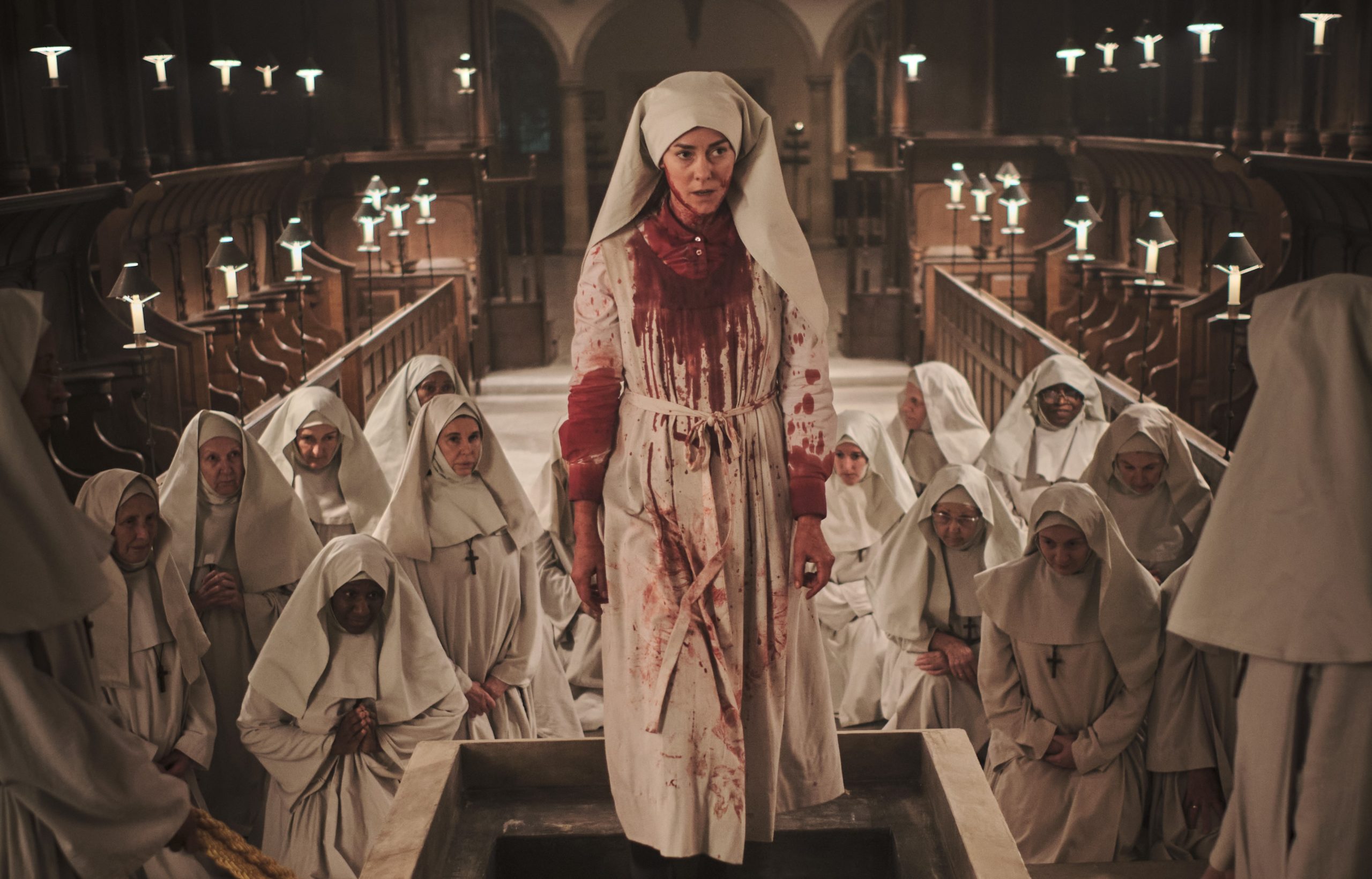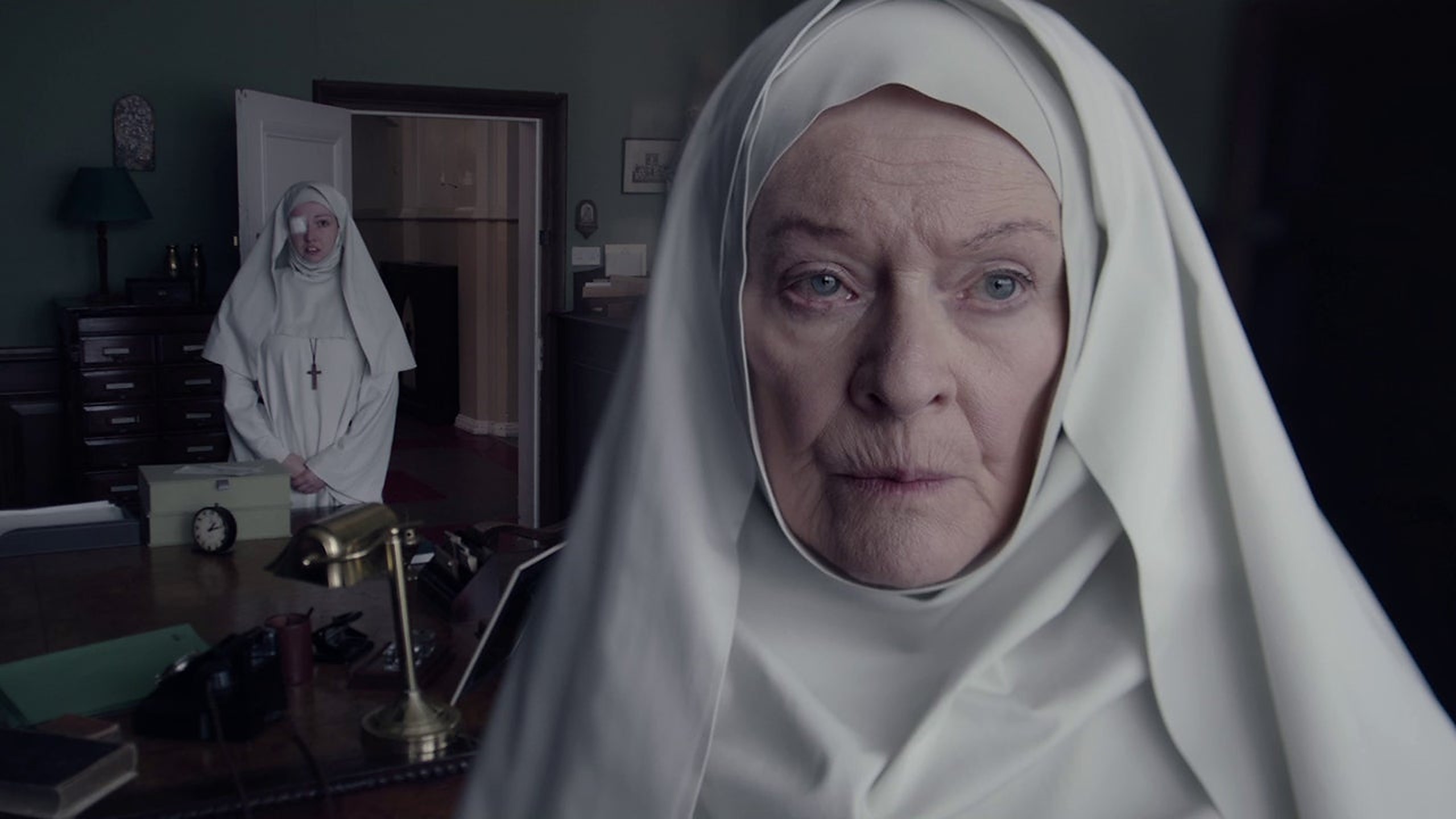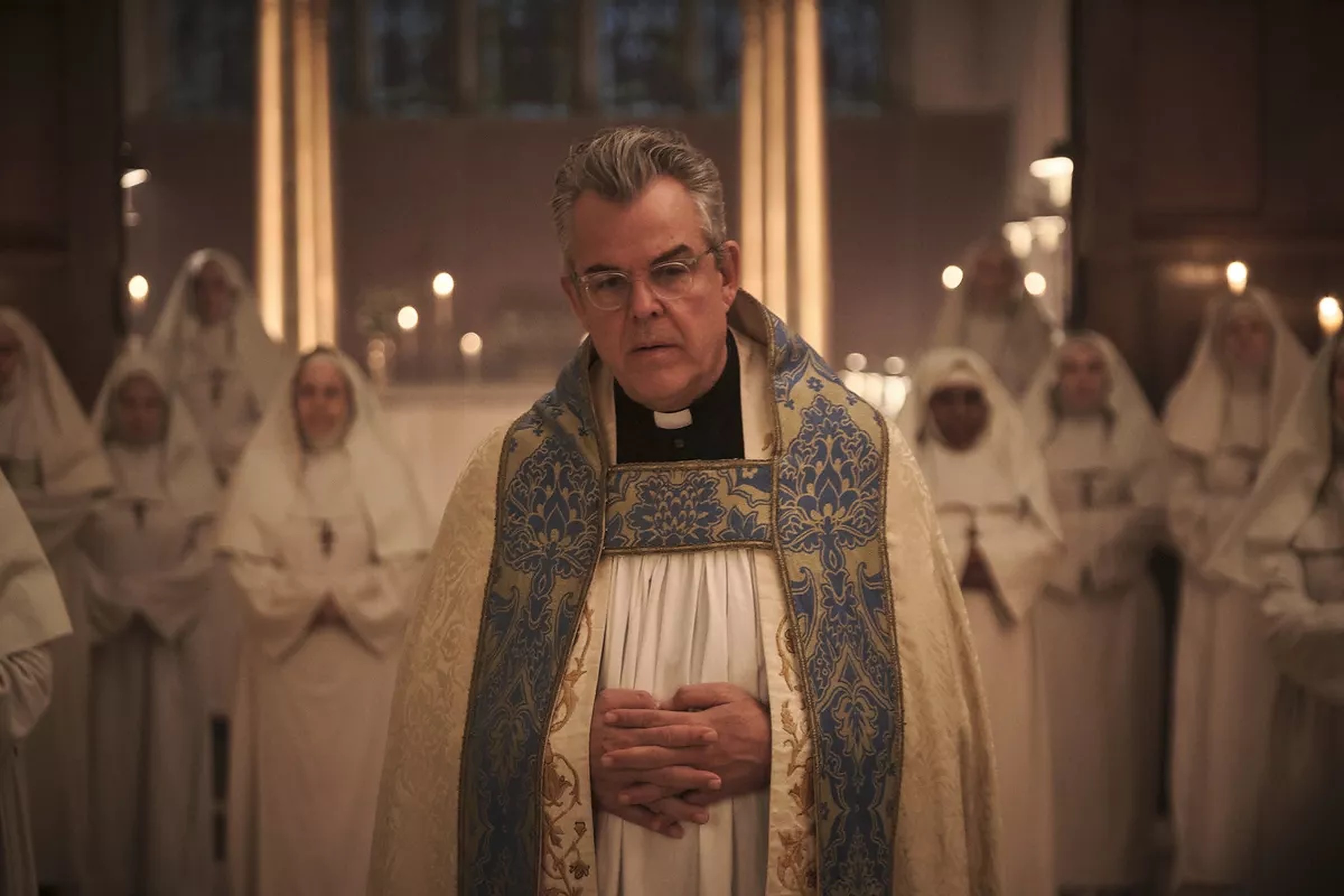Directed by Christopher Smith, ‘Consecration’ is a horror thriller movie that plays around religious beliefs and fear. It follows Grace, an eye doctor who is suddenly summoned to a remote Scottish convent after the death of her brother, a priest. Though the church claims he died by suicide, his sister refuses to accept this version of events and sets out to uncover the truth. Guided by a wise priest named Father Romero, Grace investigates the eerie convent surrounded by desolate beaches and dangerous cliffs. Soon, she stumbles upon the church’s bloody history, involving sacrilege, ungodly rituals, and murder.
Moreover, Grace discovers a disturbing secret about her past and must confront her trauma and the sinister forces around her. Featuring gifted actors like Jena Malone, Danny Huston, Janet Suzman, and Thoren Ferguson, the horror movie captivates the audience with its gripping narrative that contains equal parts scare and suspense. Besides, the depiction of religious fanaticism and the consequences of unprocessed childhood traumas make one question — does ‘Consecration’ portray true events? If you’re wondering the same, allow us to quell your curiosity!
Consecration is a Fictional Story
No, ‘Consecration’ is not based on a true story. Director Christopher Smith co-wrote an original script with Laurie Cook, which he then translated onto the big screen. Despite being fictional, the movie explores how people in power often misuse religious beliefs to induce fear and unrealistic expectations. Smith was always keen to delve into such subjects and study the intriguing equation between religion and the supernatural. In an interview with Movie Web, he spoke about resurrection being a core point of the movie’s story.

Smith shared, “If you look at the idea of miracles… the idea of bringing someone back from the dead, and all these elements I was interested in if presented properly, it could be very compelling. For instance, if you don’t make the film from an atheist standpoint but question what would happen if somebody was a second coming. What would happen if you found that person, how would that person be received?… My interest in the film was to try and tell a story that treated religion really seriously but also raised the idea of somebody having powers.”
“What if this Jim Jones character had the ability to do things? In the past, they would have immediately been called a witch. And what if she’s a ‘good person’ who’s raising those questions? How would the church and society look at her? That was kind of what intrigued me about the story,” said the filmmaker. Smith also discussed how he wished the movie to have more than just meaningless scares and explain the compelling and unexplainable fear that religion can create. Through the story of Grace, a secular girl, and her profoundly religious brother, he aimed to capture people’s curiosity over such matters, atheists and believers alike.
The director continued, “… All human beings, whether you’re religious or not, it’s in our DNA to look for questions about things we cannot understand. I wanted this film to not cheaply use religion to give you scares but to actually say, ‘why is it when I walk into a church or synagogue, or whatever, that I feel something? What is that I feel in those walls?’” Interestingly, Jena Malone, who essays Grace, echoed Smith’s thoughts.

The actress added, “Religion is the seed of storytelling, right? I mean, even pre-Christianity and Catholicism, and pre-paganism. We look out, and we ask questions, and those questions demand answers. It’s really beautiful to explore religion with questions of the supernatural, questions of good and evil. That will never be a story we’re not interested in.” In another interview with Indie Wire, she divulged another pertinent theme the movie focuses on: how empowered, defiant women have often been termed evil in history’s pages.
“I really loved the idea that throughout time, empowered women were … possessions, it’s evil, it’s the devil. Any sort of empowerment or superpower femininity has ever had it’s instantly bad…I think it’s so interesting to explore a re-imagining of a second coming as a feminine vessel, that of course, everyone thinks it’s this negative thing, but really it’s just an empowerment of creation, of being able to give life, take life. It’s a real feminine apparatus, in a way,” revealed Jena.
While it has been established that ‘Consecration’ falls in the fictional category, it does revolve around realistic themes and doesn’t use forced jumpscares to impact the audience. Instead, it gradually creeps into their psyche and invokes terror with the harsh truths it depicts, as nothing is more frightening than the immense power that religious beliefs and unanswered questions can hold over a person’s mind. Complimented by a well-written script and the cast members’ authentic performances, the movie stands out from others in the religious horror genre.
Read More: Where Was Consecration Filmed?


You must be logged in to post a comment.